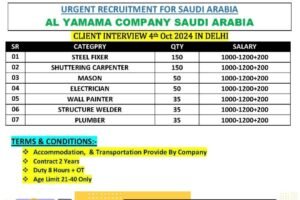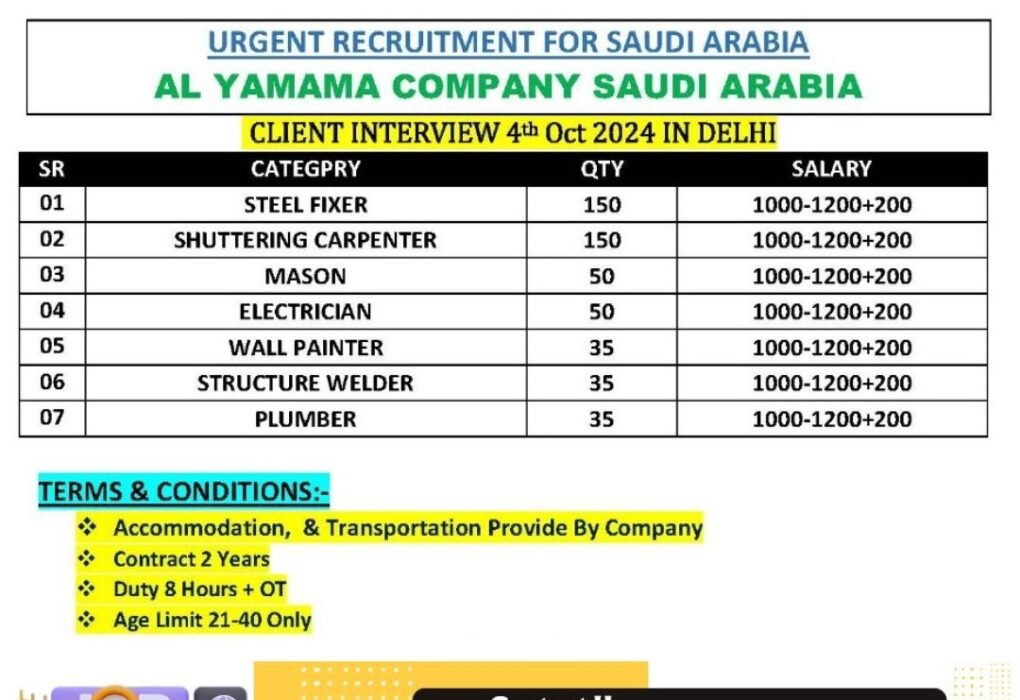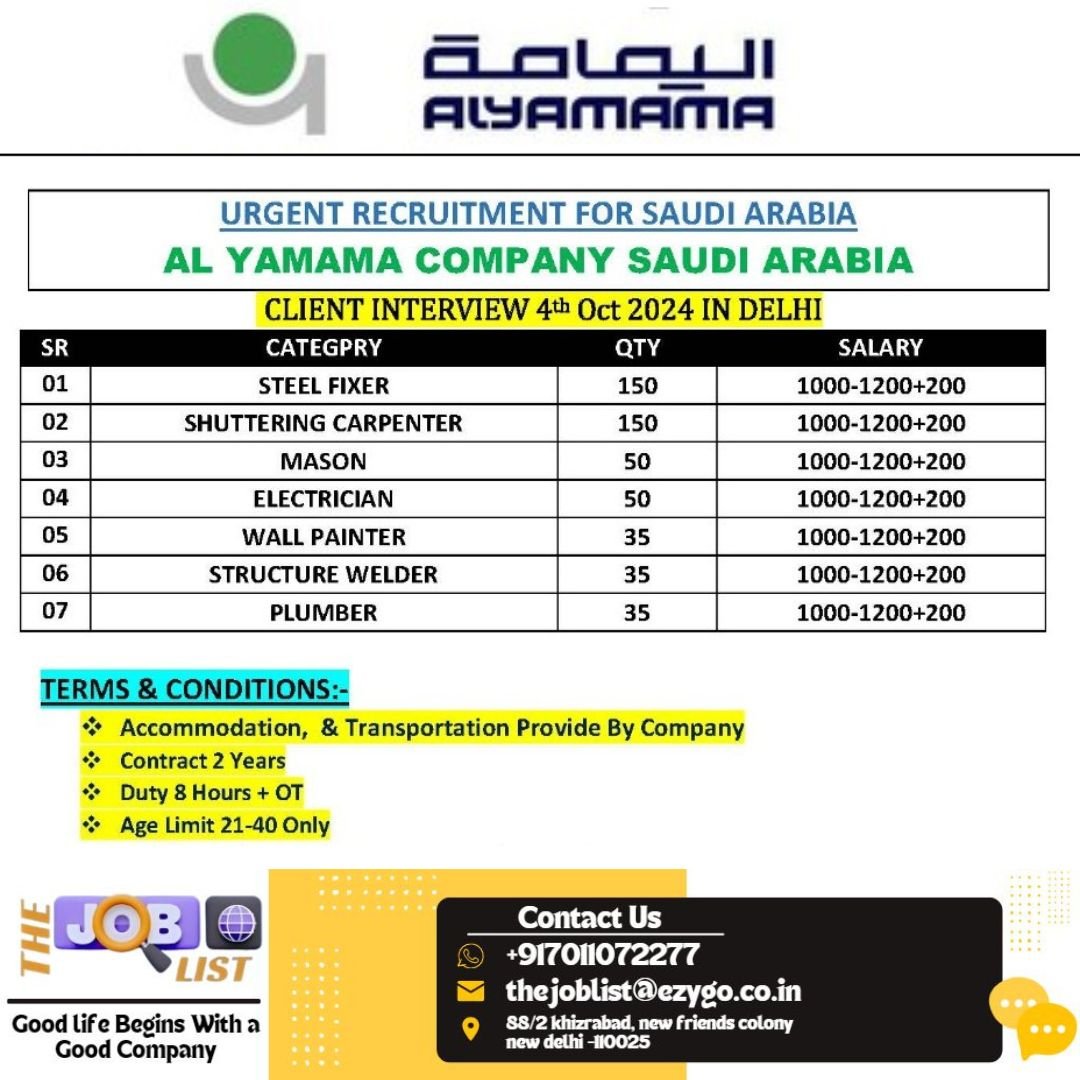

Kuwait jobs vacancies 2024 Client Interview (Boutiqaat Company)
Kuwait jobs vacancies 2024 (Boutiqaat Company)- Client Interview on 24/07/2024 New Delhi Job Location – Kuwait Company : Boutiqaat Company Required Nationalities : India Job Category: Warehouse Worker Interview-in Location: Delhi Interview-in Date: 24 July 2024, Job Posted By: Gulfjobspro Job expire on:24 July 2024, NOTE : Candidates only from are accepted. S.No POSITION QTY SALARY(SR) 1 WAREHOUSE WORKER 150…

Dubai Jobs For Indian
Are you looking job? Get best opportunities Dubai jobs for Indian in various industries, including Mason, wall painter, Rigger, and all various categories. we will help eligibility criteria, required skills, and how to apply Dubai jobs for Indian. Get expert tips on resume building, interview preparation, and visa requirements. Start your Dubai jobs for Indian…

Dubai Jobs For Freshers
Explore top job opportunities Dubai jobs for fresher in various industries, including electrician, plumber, pipe fitter, ac technician and all category foreman. I will inform eligibility criteria, required skills, and how to apply Dubai jobs for Freshers. Get expert tips on resume building, interview preparation, and visa requirements. Start your Dubai job search today!” Dubai…
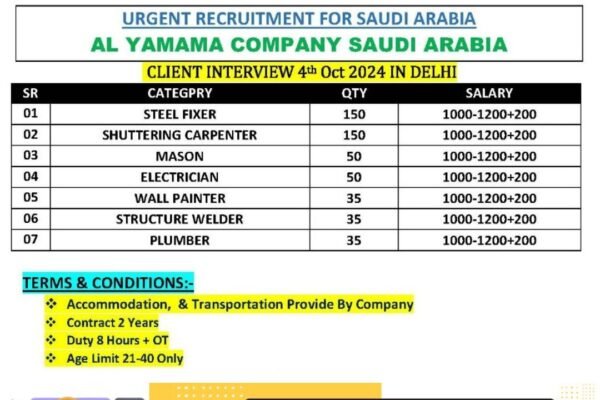
Saudi Arabia jobs vacancies 2024 – Client Interview (Al Yamama Company)
Saudi Arabia jobs vacancies 2024 (Al Yamama Company)- Client Interview on 4/10/2024 New Delhi Job Location – Saudi Arabia Company : Al Yamama Company- Saudi Arabia Required Nationalities : India Job Category: Steel Fixer, Mason, Electrician, Plumber, Wall Painter And Structure Welder. Interview-in Location: Delhi Interview-in Date: 04 Oct 2024, Job Posted By: Gulfjobspro Job…
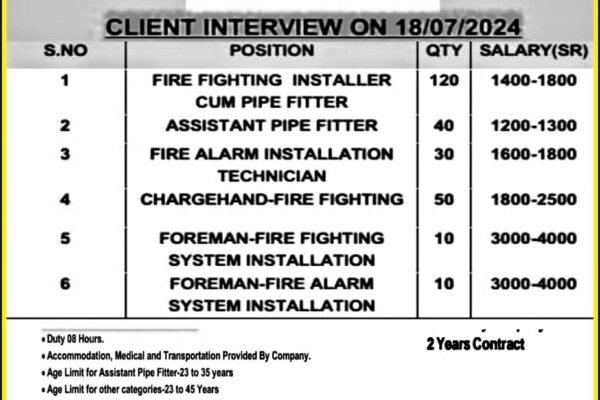
Saudi Arabia jobs vacancies 2024 – Client Interview (Naffco)
Saudi Arabia jobs vacancies 2024 (Naffco)- Client Interview on 18/07/2024 New Delhi Job Location – Saudi Arabia Company : NAFFCO – Saudi Arabia Required Nationalities : India Job Category: Fire Fighting And Fire Alarm Jobs Interview-in Location: Delhi Interview-in Date: 18 July 2024, Job Posted By: Gulfjobspro Job expire on:18 July 2024, NOTE : Candidates…

Urgent Requirement For Plumber And Welder Job In Saudi Binladin Group Saudi Arabia
We Are Urgently Seeking Skilled Candidates For The Positions Of Plumber, Pipe Fitter And 6G welder Job In Saudi Binladin Group Saudi Arabia . Requirement For Plumber, Pipe Fitter And 6G Welder Job In Saudi Binladin Group From Saudi Arabia ( Interview In New Delhi On 18 July 2024) Requirement Of skilled Candidates For The Positions…





